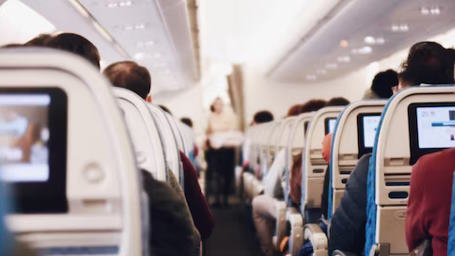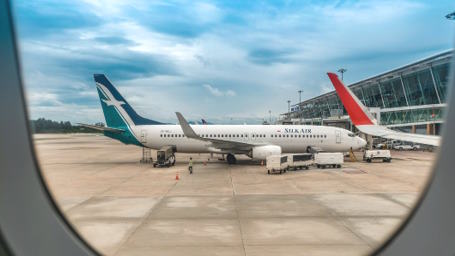How do you get out of a non-refundable flight? Can non-refundable flight tickets be refunded?
Purchasing a basic, non-refundable ticket is often cheaper than a refundable one. So when your travel plans seem pretty solid, paying extra money for a refundable flight ticket might not make much sense.

It works out just fine, and travelers get to their destination with basic economy tickets having more money to spend on their trip. Unfortunately, the unexpected does happen, and these airline passengers are left with no options other than paying hefty cancellation fees or penalties for flight changes.
Unless you pay considerably more for a refundable flight ticket, most airfares are nonrefundable under normal circumstances.
Many airlines relaxed their tough cancellation policies because of the Covid pandemic and waived cancellation and change fees for a few years. As passengers start to take to the skies again, most of these same airlines have started to revert to their old refund policies.
Getting a refund for a nonrefundable airline ticket can be difficult, but there are a few options you can explore:
- Check the airline’s cancellation policy: Some airlines may offer a refund or credit for a nonrefundable ticket under certain circumstances, such as a family emergency or illness. Check the airline’s policy or contact their customer service department to see if you qualify.
- Purchase travel insurance: Some travel insurance policies from companies like TravelGuard cover cancellation fees for nonrefundable tickets. Make sure to read the policy carefully to understand what is covered and what is not.
- Contact the airline and ask for a refund: While it’s not guaranteed, you can try contacting the airline and explaining your situation. They may offer a refund or credit as a goodwill gesture. Be polite and patient, and explain your situation clearly.
- Sell or transfer the ticket: If the airline allows ticket transfers, you can try selling or transferring the ticket to someone else. Websites like SpareFare or TransferTravel allow you to sell your nonrefundable ticket to someone else.
Keep in mind that each airline has its own policies and procedures regarding nonrefundable tickets, and getting a refund may not always be possible. It’s important to read the terms and conditions of your ticket carefully before purchasing to understand what your options are in case of cancellation or changes to your travel plans.
What is the 24-hour cancellation policy for tickets?
The 24-hour cancellation policy for airline tickets is a rule that allows passengers to cancel their flight reservations within 24 hours of booking without penalty or fee. This policy applies to flights departing from or within the United States and is mandated by the U.S. Department of Transportation (DOT) for all airlines.
The 24-hour cancellation policy gives passengers the opportunity to review their travel plans and make changes if necessary without incurring a financial penalty. If passengers cancel their reservation within 24 hours of booking, they are entitled to a full refund of the fare paid. Some airlines may still charge a fee for canceling or changing a reservation, even within the 24-hour window, so it’s important to check the airline’s policy before making changes.
It’s worth noting that the 24-hour cancellation policy only applies to bookings made at least 7 days before the scheduled departure date. Also, it’s important to keep in mind that the policy applies to reservations made directly with the airline, not through third-party websites or travel agents.
What is a Nonrefundable Airline ticket?
A nonrefundable airline ticket is a type of airline ticket that does not allow passengers to receive a refund if they cancel their travel plans. Once purchased, the ticket is considered final, and the airline keeps the entire fare paid by the passenger, regardless of the reason for cancellation.
Nonrefundable airline tickets are often less expensive than refundable ones but have more restrictions and less flexibility. In addition to not being eligible for a refund, nonrefundable tickets may also have restrictions on changing the travel dates, route or destination.
It’s important to carefully read the terms and conditions of a nonrefundable ticket before purchasing to understand the restrictions and fees associated with the ticket. Some airlines may offer options for changing or canceling nonrefundable tickets for a fee, but the policies vary widely between airlines.
How late can you cancel a flight?

The ability to cancel a flight and receive a refund or credit depends on the airline’s policies and the type of ticket purchased. For most airlines, a nonrefundable ticket cannot be canceled for a refund, although some may allow passengers to cancel and receive a credit for future travel.
However, some airlines may allow passengers to cancel their flights up until a certain time before departure and receive a refund or credit. This policy is usually called the “cancellation window” or “change window,” The exact timing and conditions vary by airline.
If passengers need to cancel a flight, they should do so as early as possible to avoid penalties or fees. If a passenger cancels a nonrefundable ticket, they may still be able to apply the value of the ticket towards future travel, but they will likely be charged a change fee.
Passengers should check the airline’s policies before booking and canceling their flights to understand their options and any associated fees or penalties.
What rights do passengers have if they are bumped from a flight
Do airlines have to compensate for overbooked flights?
What rights do airline passengers have?
If passengers are bumped from a flight, they have certain rights depending on the airline’s policies and local laws. In the United States, the Department of Transportation has established rules for airlines to follow when they bump passengers from flights.
- Compensation: If the airline involuntarily bumps a passenger, the passenger is entitled to compensation. The amount of compensation varies based on the length of the delay caused by the bumping and the price of the ticket. The compensation can be in the form of a cash payment or a voucher for future travel.
- Rebooking: The airline is required to rebook the passenger on the next available flight to their destination. If the next available flight is not until the following day, the airline may be required to provide hotel accommodations and transportation to and from the hotel.
- Refund: If the passenger decides not to travel at all, they are entitled to a refund of their ticket.
It is important to note that if the airline bumps a passenger due to overbooking, they must first ask for volunteers before involuntarily bumping anyone. If the airline cannot find volunteers, they must follow compensation, rebooking, and refund rules.
Cancel Your Flight: Delta
How to change or cancel your flight: United



